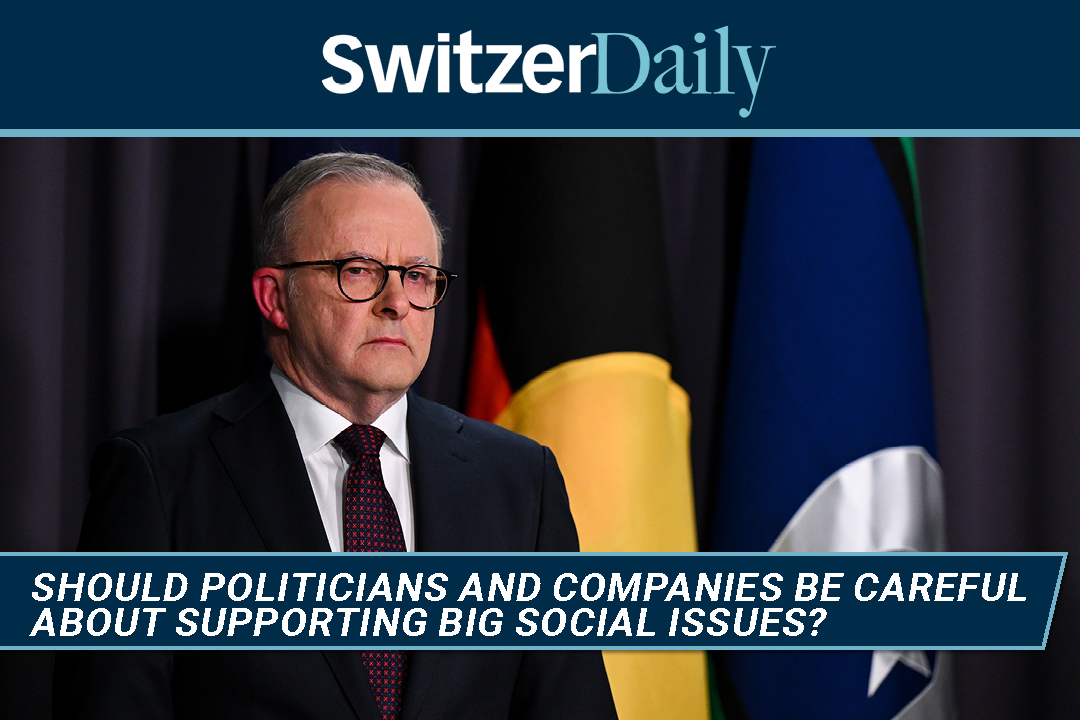

The failure of The Voice referendum not only has led to political backlashes with the Prime Minister being pressured to put his and the Government’s focus back on the bread-and-butter issues, such as the cost of living, the Daily Telegraph says big companies could be rethinking their commitment to important social issues.
As The Tele’s Jared Lynch reminded us: “Most of Australia’s 20 biggest companies - including BHP, the big four banks, Telstra and Woolworths - backed the Yes campaign, despite more than 60 per cent of Australians rejecting the proposal.”
In the world of academic marketing, they call actions such as a company supporting a cause as “virtue signalling”. Blackmore’s Maurice Blackmore thinks the weekend’s referendum will make companies think longer and harder before they support what they think are good causes. “I think what will happen in the boardroom, before they come up with a similar sort of thing again, is the board would want to see the views of the staff. Because if the staff are all opposed to it, or even if 60 per cent of them are opposed to it, then you don’t want to alienate your staff”.
Lynch and The Tele went looking for corporate reaction to the referendum’s result but said: “The outcome of the referendum has already quietened the voices of some of its loudest supporters, with ANZ, which donated $2 million to the Yes campaign, declining to comment on Sunday”.
This is a thorny issue and it’s not clearcut what companies should do in the age of social media.
It must be remembered that social media critics often have a big sway with their followers and can be followed by media commentators and journalists, who then ramp up the exposure of their views.
For a variety of reasons, Qantas publicly supporting the Voice might have made a lot of business sense but it’s hard to see it losing business because of it.
Qantas’ brand has been more damaged by the behaviour of its CEO and board, which really are the big issues for companies to worry about.
Don Argus, who once was the CEO of NAB and chairman of BHP, put the issue into a sensible context.
“You’ve got to look at how corporations justify their licence to operate in communities,” he told The Tele. “I don’t think you can generalise on these things. Some companies have a different view on how they do these things.”
The best advice on the subject came from Professor Will Harvey, a leadership academic at the University of Melbourne. “If you are truly linking your strategy to your purpose, then that gives you much more substance behind the kinds of decisions you’re making,” he said.
Right now, many companies are becoming public supporters of reforms to combat climate change, despite a substantial minority having doubts about the seriousness of the threat and the effectiveness and practicality of the reforms.
Some companies will take the risk of being leaders on big social and economic issues, while others will choose to fly under the radar. However, if their actions or non-actions result in actual or potential backlash on social media platforms, boards won’t be able to afford to ignore it.